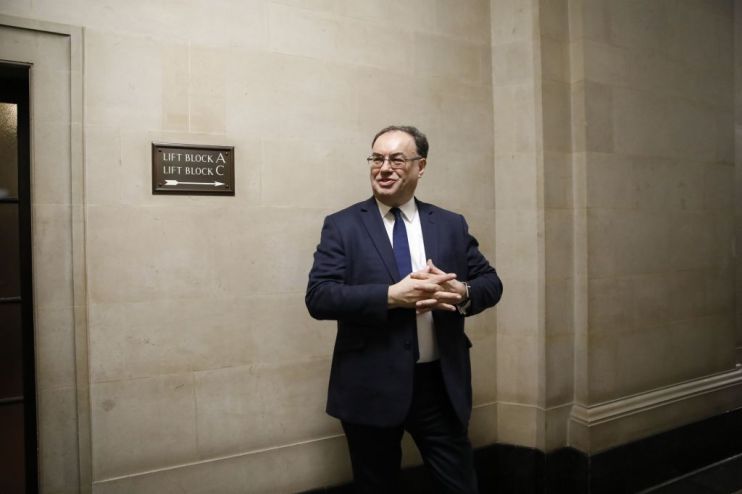Bank of England’s Andrew Bailey rejects direct government financing amid coronavirus

Bank of England governor Andrew Bailey has defended the institution’s drastic response to the coronavirus slowdown, saying it is not directly financing government spending and is against such an idea.
Threadneedle Street has ramped up quantitative easing (QE), under which it creates money and buy bonds to stimulate lending, to tackle the fallout from coronavirus. It is also buying companies’ short-term debt, known as commercial paper, to help keep firms liquid.
Some commentators have said the Bank is coming close to “monetary financing”. This is when a central bank permanently expands its balance sheet, buying up assets to fund government spending.
Others have suggested that the Bank should pursue such a policy in deeply uncertain times.
But Bailey today said in an article for the Financial Times that the BoE is not doing monetary financing and is firmly against the idea.
He said it would “ultimately result in an unsustainable central bank balance sheet and is incompatible with the pursuit of an inflation target by an independent central bank”.
The governor – who only took over in the middle of March – added that, in any case, “the UK’s institutional safeguards rule out” such a policy.
By law, the BoE is required to deliver price stability, which it judges to be two per cent inflation. Bailey said monetary financing would put the Bank’s mandate in jeopardy.
It is also up to the Bank to decide when to stop or start asset purchases, with the aim of hitting its inflation target. Bailey said the Bank’s rate-setting committee is free to reduce asset purchases if inflation looks set to rise, which would be incompatible with monetary financing.
Bailey said: “The BoE will not hesitate to take all necessary actions both to support British businesses and households through this period of uncertainty.”
He added that controlling inflation remains a priority, meaning the Bank will ensure policies are “consistent with the two per cent target in the medium term”.